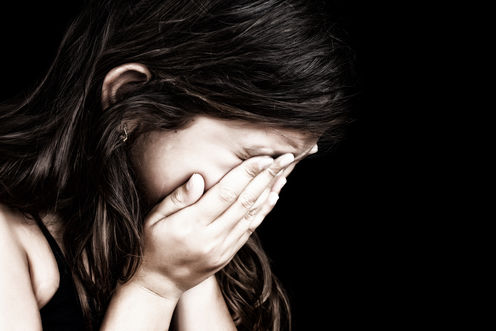
We used to think that bullying happened to all children, it was a “childhood rite of passage” and “character-building”. Yes, there is an intention to hurt involved in bullying, but how much hurt can kids do to each other?
However, abuse of children by adults, especially parents hurting their children, has long been condemned. The broken trust that children had for adults who are supposed to care for them is abhorrent to us.
Research has confirmed the long-term negative effects of such child abuse and neglect. These children suffer more depression, anxiety, alcohol and drug abuse, suicidal behaviour, are inattentive and some are killed or injured. Because of this many prevention and intervention efforts have been instituted.
Research in the last 30 years on children being bullied by peers has shown, contrary to what we thought, there are similar negative effects as for adult-abused children. Long-term psychological problems have been found for these bullied children such as increased levels of anxiety, depression, poor self-worth, social isolation and loneliness, drug use and psychosomatic complaints.
In addition, suicidal thoughts and attempts, feeling more socially ineffective, experiencing greater interpersonal difficulties, having higher absenteeism from school and low academic competence have all been associated with being a victim of bullying.
New study finds bullied children suffer more than abused children
A group of researchers based in England analysed data from two longitudinal studies, one from parents and children in the UK (the Avon Longitudinal Study of Parents and Children) and one from parents and children in the USA (the Great Smoky Mountains Study).
In the UK study, data on maltreatment by adults was provided by mothers recruited while they were pregnant and the data collected by postal questionnaires when their children were two months old through to when they were eight and a half. Children were interviewed when they were eight years old and again at ten and 13 about bullying. The study began in 1991 and involved 4026 children.
In the USA study, there were 1420 children from 1993 parents. Children aged from nine to 16 years were interviewed annually about maltreatment and bullying. The families were chosen using a representative sampling technique.
The data from both groups on mental health was collected when the children were 18 in the UK and 19, 21 or 24-26 in the USA. The instruments measured anxiety, depression, self-harm and suicidal thoughts.

The study surprisingly found overall that children who were bullied by peers had similar or worse long-term adverse consequences on their mental health when they were young adults than children who were maltreated by adults (usually in their family).
Those children maltreated by family when young in the UK were no more likely to have any mental health problems than those who had not been maltreated. In the USA those children who were maltreated but not bullied were more depressed than those who had not been maltreated.
If, however, the children in both countries were bullied only they showed anxiety, depression and self-harm or thoughts of suicide. Additionally, when children in both countries were both maltreated by adults and bullied by their peers the mental health problems were worse than those children who were bullied only.
It seems hard to believe that children who were bullied by their peers had worse long-term outcomes in their mental health than those who maltreated by adults. However, the study was conducted by very credible researchers and was published in a very prestigious journal, the Lancet Psychiatry.
The data was not collected by these researchers so there was no bias on their part. The sample of children was very large and came from two different countries but showed mostly the same outcomes. Although the researchers used slightly different ways of collecting the data, interviews or questionnaires and different ways of sampling, the results are still similar.
How helpful is this finding?
However, it is still only one study. Mothers in the UK might have under-reported cases of adult maltreatment. The maltreatment was early in the life of the children, while bullying was closer to the time when the mental health measures were taken.
The main problem with the study, which the authors concede, is that the types of maltreatment and bullying were not measured, nor was the severity of either, which could make a big difference to the results.
We already know from many other studies that both maltreatment by adults and bullying by peers have negative consequences into adulthood. Many of the consequences are similar.
Therefore, we should not over-react. Is there any point in asking if skin cancer is worse than bowel or breast cancer? We need to work for the prevention and intervention of all forms of abuse of children. A study on which type of abuse has worse effects doesn’t really help anyone.
Marilyn Campbell receives funding from Australian Research Council and National Health and Medical Research Council
